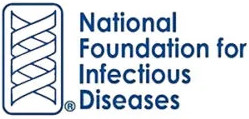NOTICE: Due to increased infection control and risk reduction measures all vaccinations are given by appointment only; walk-in appointments are not permitted.
It is important to remember that maintaining immunization is a lifelong process.
Foxhall Internists Immunization Clinic’s specially trained staff provide routine and travel vaccinations to individuals age 16 and older.
Routine Vaccinations
Based on availability, routine vaccination appointments are scheduled between 9 am to 12 pm and 1 pm to 4 pm on Mondays through Fridays.
Flu shots for the 2023-2024 influenza season are now available by appointment. Please call (202) 362-4467 to schedule yours.

Travel Vaccinations, Medications, and Education
Based on availability, travel vaccination appointments are scheduled between 9 a.m. to 11:30 a.m. and 2 p.m. to 3:30 p.m. on Mondays, Tuesdays, Thursdays, and Fridays.
All travel vaccinations include an initial consultation to review which vaccinations are needed prior to your travel, as well as general health and safety guidelines (such as food and water concerns) pertinent to each country you are planning to visit. Appropriate vaccinations and medication prescriptions are generally provided at the time of your initial consultation. As some travel vaccinations require multiple visits and/or time for your body to build immunity, it is recommended that you schedule your appointment at least one month prior to travel.
Available Vaccines
Malaria
Flaviviruses
Traveler’s Diarrhea
In areas with poor hygiene, it is important to avoid tap water, including ice, and foods that have not been personally peeled. Despite appropriate precautions, unfortunately, bacterial infections causing diarrhea are common. Additional information regarding traveler’s diarrhea is available from the Centers for Disease Control and Prevention.
Altitude Illness
Altitude illness is characterized by headache, shortness of breath, and light-headedness. Risk factors include: fast ascent (greater than 3,000 feet per day), altitude greater than 6,000 feet, strenuous activity at high altitude, and a previous history of altitude illness. The best way to prevent altitude illness is a slow ascent. Overexertion during the first few days and excess dietary salt should be avoided. Altitude illness can occasionally be very severe and may require prompt medical attention. Additional information regarding altitude illness is available from the Centers for Disease Control and Prevention.

Foxhall Internists Immunization Clinic Director



